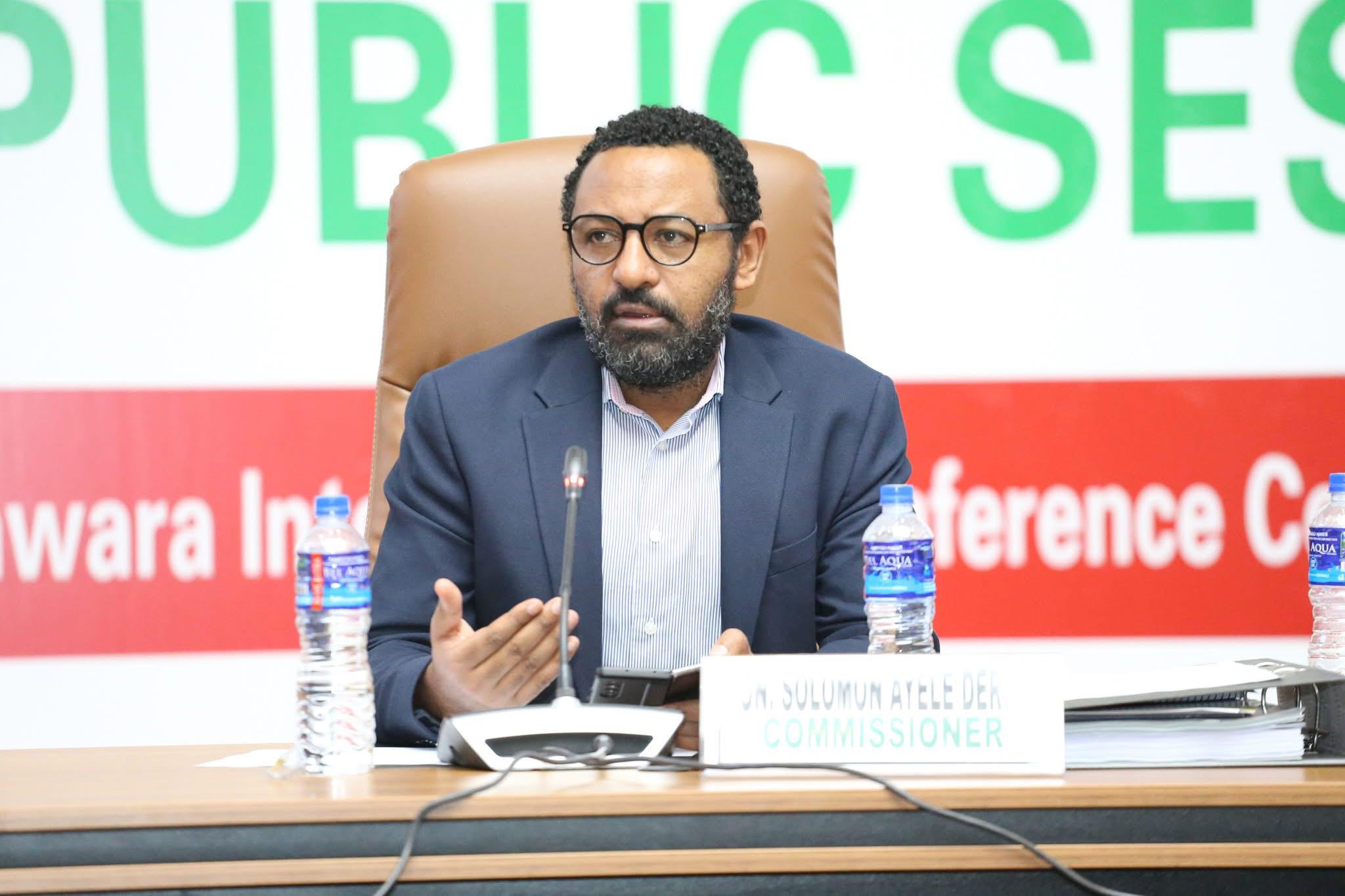Moderated by Commissioner Solomon Ayele Dersso, the panel was held pursuant to the Commission’s resolution on the 1994 genocide and in observance of the annual commemoration period designated by both the African Union and the United Nations from 7 April to 16 July.
The lessons of this panel, first and foremost, are to ensure that the lessons from that horrific incident are adequately heeded and non-repetition is guaranteed.
Commissioner Solomon Ayele Dersso, ACHPR
Dersso stressed the need to honour the memory of the victims and to recognise the enduring suffering of the Tutsi community, especially women and children.
Adama Dieng, Special Envoy of the Chairperson of the African Union Commission for the Prevention of Genocide and Mass Atrocities, delivered a poignant analysis of the international and regional failures that enabled the genocide. He recalled the findings of the 1998 report by the International Panel of Eminent Personalities established by the Organisation of African Unity (OAU), which investigated the events leading up to and surrounding the genocide.
Dieng underscored that the 1994 genocide was not a tragedy born of ignorance, but one marked by conscious international inaction. The global community, despite being aware of the rising threat of mass violence, chose to remain passive as nearly one million Tutsis were systematically murdered in just over 100 days. This inaction was compounded by weak early warning systems, lack of political will, and institutional indifference.
While commemoration is vital, genocide prevention however requires legal accountability, international vigilance, and proactive political leadership.
Adama Dieng, Special Envoy of the Chairperson of the African Union Commission for the Prevention of Genocide and Mass Atrocities
Dieng called on African States, regional bodies, and the ACHPR to embrace robust national mechanisms for early warning and response, and to build legal and institutional systems capable of responding swiftly to signs of identity-based violence and State collapse.
Allan Ngari, Africa Advocacy Director at Human Rights Watch, also addressed the panel, highlighting the institutional and moral collapse that enabled the genocide. He recalled how the genocide unfolded in full view of the world, with early signs of hate and targeted killings widely reported but largely ignored by global and regional powers.
Ngari pointed to the African Union Transitional Justice Policy as a transformative tool that offers a holistic, African-led, and victims-centred approach to post-conflict justice, accountability, truth-telling, and non-repetition. He emphasised that the effectiveness of this policy rests on three key elements: principled leadership from the ACHPR, national ownership by member States, and strong partnerships with civil society.
In light of ongoing conflicts in Sudan and the Eastern Democratic Republic of Congo, Ngari called on the ACHPR to institutionalise its early warning and investigative capacities in contexts showing clear signs of ethnic targeting, hate speech, and State breakdown.
The panel concluded with a unified call for stronger, more proactive engagement by African institutions in the face of contemporary conflict and atrocities. It reinforced the importance of remembering the past not merely as an act of mourning, but as a guide to action ensuring that the tragedy of the 1994 genocide against the Tutsi never happens again.
Author
Adélaïde Etong Kame
Adélaïde has a Master in International Law and Relations from the University of Clermont-Ferrand. Adélaïde worked with indigenous people and minorities in Mauritania for better protection of their rights, especially victims of slavery. Previously, she advocated for the rights of women in Poland and Macedonia as well as the advancement of freedom of expression in Central Africa.
Article also available in




